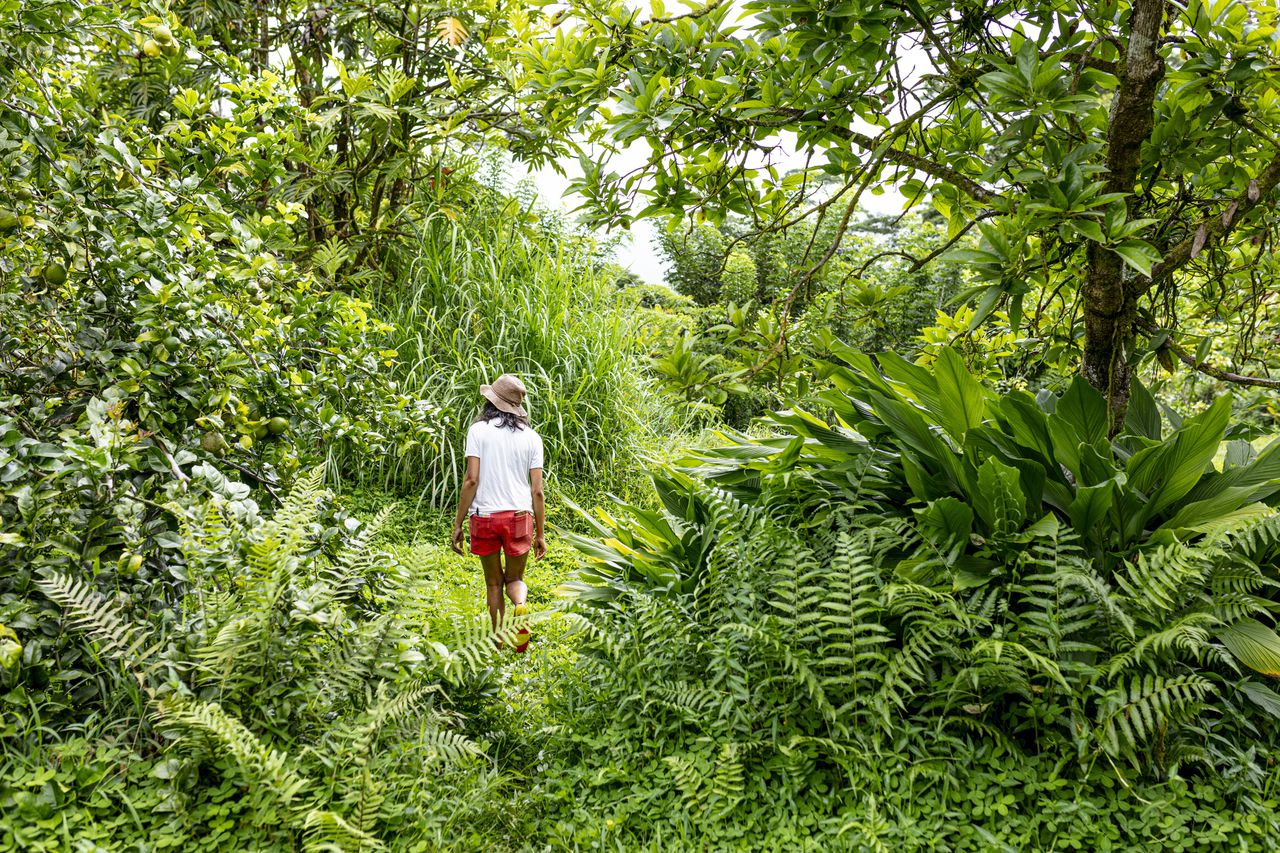Hawaii pushes for a greener constitution
I hope your Valentine’s Day was brimming with sustainable romance, like flowers crafted from repurposed toilet tissue rolls and discounted chocolate you bought on Feb. 15 last year.
I skulked into a restaurant around 8 p.m. to get myself a power bowl with chicken, lentils and kale. That’s food for people who are feigning vitality. I took it back to my office, where I made the mistake of looking at Mark Zuckerberg’s trauma memory machine, Facebook. It decided to serenade me with a montage of my exes through years of Valentine’s Days, like some kind of online torture chamber where, in addition to being reminded of how lousy I am at dating, I also got to see how much hair I used to have.
Fortunately for me, there’s still plenty of love and joy to be found in our environment, and I appreciate those doing incredible things to preserve it.
This week on The Meltdown, we spotlight Hawaii’s significant efforts to amend its constitution to include environmental rights for all. We delve into how its unique culture can foster a deeper love and appreciation for the environment. Lastly, we explore the human tendency to procrastinate until the eleventh hour, something I excel at.
Before you read on, please feel free to follow me on Twitter, Facebook and Instagram. And share this newsletter with your friends if you think they’ll enjoy it.
Drizzle
woman walking through jungleGetty Images
Last week, the Hawaii Senate Committee on Agriculture and Environment unanimously voted to advance a bill including individual environmental rights in the state’s constitution. The proposed change, known as the Hawaii Green Amendment, seeks to ensure individuals, including future generations, the right to clean water, air, a healthful environment, climate, native ecosystems, and beaches.
If enacted, it would position Hawaii as the fourth state to guarantee these rights, joining the ranks of Pennsylvania, Montana, and New York.
“Our environment is part of who we are here in Hawaii. It nurtures every part of us–our health, the joy we feel in nature, at the beach, or hiking in the mountains. Hawaii’s environment is fundamental to a healthy economy and stable workforce,” said lead sponsor Senator Mike Gabbard(D-21). “Sadly, the Maui wildfires and Red Hill fuel leaks brought home the fact that when we damage our environment, we damage the people. Likewise, when we nurture our environment, we nurture the people.”
Nine other states have proposed legislation to let voters decide in this year’s election whether they want these Green Amendment protections included in their state constitutions. New Jersey, Hawaii, and Washington are the closest to making the change.
Montana’s environmental protections in its constitution were the springboard that allowed a group of 16 children to successfully sue the state for favoring the fossil fuel industry over their constitutionally protected rights to a clean environment. I guess the kids are alright.
Touch Grass

Mature and vibrant Hawaiian woman does yoga outside on an early morning. Her face is lifted up to the sky, her eyes are closed, and she is holding the sides of her head with her hands. She has a peaceful expression.Getty Images
Scotland and Hawaii have nothing in common, but we Scots are aware of how Hawaiian culture is deeply connected to nature. We watch TV. That connection, I recently learned, comes with practices and concepts that can help individuals find solace and improve their well-being amidst the strains of life. Here are a few things that you may be able to incorporate into your life:
- Ho’oponopono: A Hawaiian reconciliation and forgiveness practice, fostering harmony and balance within oneself, with others, nature, and the cosmos, aiding in releasing negative emotions.
- Aloha spirit: Central to Hawaiian culture, this ethos of love, peace, compassion, and mutual respect encourages living in harmony with nature and others for a fulfilling life.
- ‘Āina: Viewing land as a living entity that sustains life, this concept underscores the importance of environmental stewardship and connecting with nature for a sense of belonging.
- Oli: Beyond the entertainment of hula and chants, these are expressions of connection to nature, history, and spirituality, offering a deep sense of belonging to the Hawaiian heritage.
- Spending time in nature: Embracing the outdoors through surfing, hiking, and swimming is encouraged, benefiting mental health, reducing stress, and enhancing physical well-being.
Compost Dump

A group of young men enjoying a party at a house in North Shields, North East England. They are all socialising together, eating pizza.Getty Images
Last week, we talked about humans’ love-hate relationship with nostalgia. It can keep us tethered to a perceived wonderful past at the expense of what we think is a scary future. But human history shows that eventually, action is often taken, like the suffrage movement, civil rights, the HIV/aids crisis, and dealing with the hole in the ozone layer, among others.
But why do we often wait so long, even after a disaster, to make necessary changes?
Humans are biased towards immediate gratification, often at the cost of long-term prosperity, which explains why urgent environmental issues are often sidelined until they reach a critical point. For example, what would you rather have, a single pizza tonight or a huge limitless pizza party a month from now?
If you choose the pizza now, this demonstrates a thing called temporal myopia and delayed discounting because you want immediate pleasure over future benefits. This is reflected in our environmental actions, where temporal myopia leads us to overlook the long-term advantages of sustainability for immediate comforts and conveniences. Delayed discounting is also part of this procrastination conundrum. It makes us undervalue necessary long-term environmental actions in favor of short-term gains. Is that food for thought?
Oh, I just remembered that Hawaiians and Scots do have something in common. We all look great in skirts.
Thanks for reading The Meltdown. Please sign up, share, and be kind. Send tips to: [email protected]
See you on Thursday.
